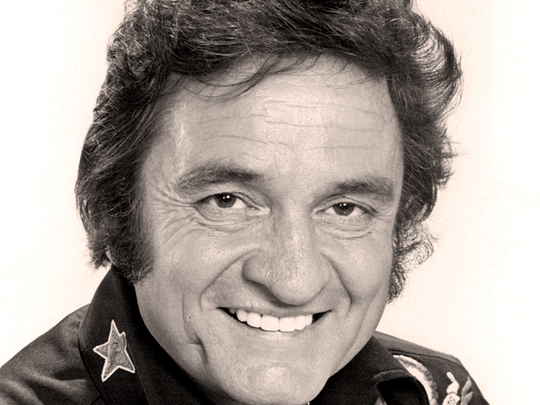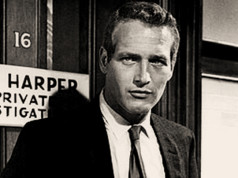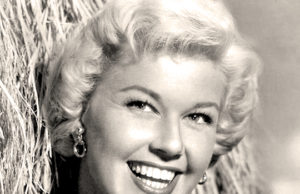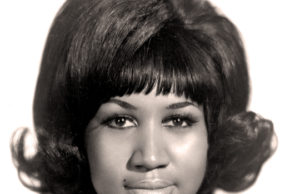CBS / Wikimedia Commons / CC-BY-SA-3.0 / GFDL
Johnny Cash
(Singer)
26 February 1932 – 12 September 2003 (Aged 71)
Cash was an American singer-songwriter, who became one of the best-selling artists of all time, selling over 90 million records worldwide.
To exemplify the breadth of appeal of Cash and his music, he has the rare honor of being inducted into the Country Music, Rock and Roll, and Gospel Music Halls of Fame.
Among his best-loved songs are “Folsom Prison Blues”, “I Walk the Line”, “Ring of Fire”, and “Jackson”, a duet with his future wife, June Carter, while his most acclaimed album came in 1968 with Johnny Cash at Folsom Prison.
Cash met June while on tour in 1955 and became infatuated with her, 13 years after they first met Cash proposed to June, during a live performance in London, Ontario.
For the next 35 years, they raised their child, created music, and toured together until June’s death on 15 May 2003.
June had remained with him throughout his multiple stints in rehab for drug abuse. Johnny died less than 4 months after June.
During the 1960s, Cash used his status to raise awareness about the issues surrounding the struggles of the Native American people.
Cash sang songs about their humanity, confronting the U.S. Government, and fundraising to build a school on the Rosebud Reservation in South Dakota.
In the mid-1980s, Cash toured with Waylon Jennings, Willie Nelson, and Kris Kristofferson as The Highwaymen, producing three hit albums. In 1999, Cash received the Grammy Lifetime Achievement Award.
Having spent his final years suffering from the neurodegenerative disease Shy–Drager syndrome, Cash died at the age of 71 from diabetic-related complications, while it was reported a broken heart after June dying may have also contributed.
Gregory Peck
(Actor)
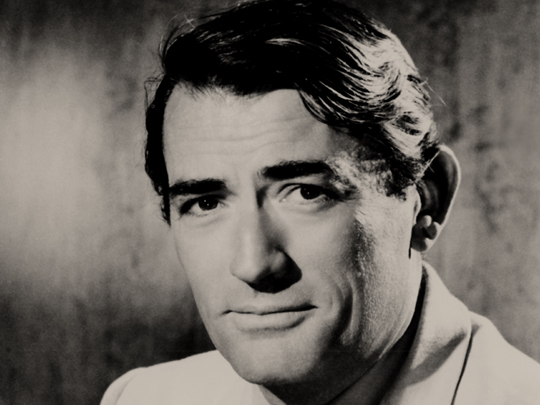
5 April 1916 – 12 June 2003 (Aged 87)
Peck was an acclaimed American actor and one of the most popular film stars during Hollywood’s Golden Age.
Peck won an Academy Award for his performance as Atticus Finch in the 1962 film To Kill a Mockingbird.
Among his most famous films are Twelve O’Clock High, Spellbound, Roman Holiday, Moby Dick, The Guns of Navarone, Cape Fear, and How the West Was Won.
Outside of his acting career, Peck was known for his charitable and political activities, serving as chairman of the American Cancer Society, and being a board trustee for the American Film Institute.
Peck was an outspoken critic of the Vietnam War, while still being supportive of his son who fought there.
He was also a vocal supporter of a worldwide ban of nuclear weapons and was a lifelong advocate of gun control.
In 1969, Peck received the Presidential Medal of Freedom from U.S. President Lyndon Johnson in recognition of his humanitarian efforts.
He died in his sleep at the age of 87.
Barry White
(Singer)
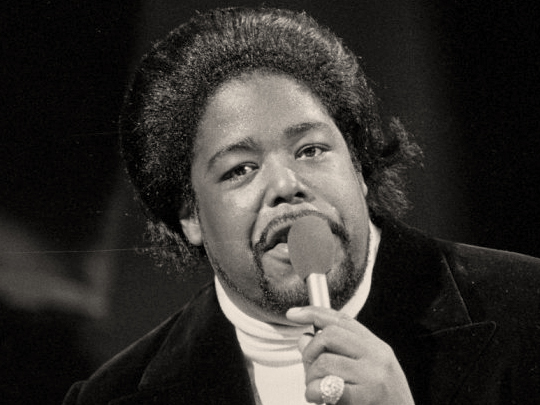
12 September 1944 – 4 July 2003 (Aged 58)
White was a legendary soul singer whose distinctive voice saw his record sales reach over 100 million worldwide, making him one of the best-selling music artists of all time.
Among White’s best-loved songs are “You’re the First, the Last, My Everything”, “Let the Music Play”, and “Can’t Get Enough of Your Love, Babe”.
Over the course of his career, dozens of White’s singles and albums earned gold and platinum discs.
White suffered numerous health problems, before being hospitalized with kidney failure in 2002.
In May 2003, while awaiting a kidney transplant White suffered a severe stroke, dying less than two months later at the age of 58.
After being cremated, White’s ashes were scattered in the Pacific off the California coast.
He was posthumously inducted into the Dance Music Hall of Fame and awarded a star on the Hollywood Walk of Fame.
Katharine Hepburn
(Actress)
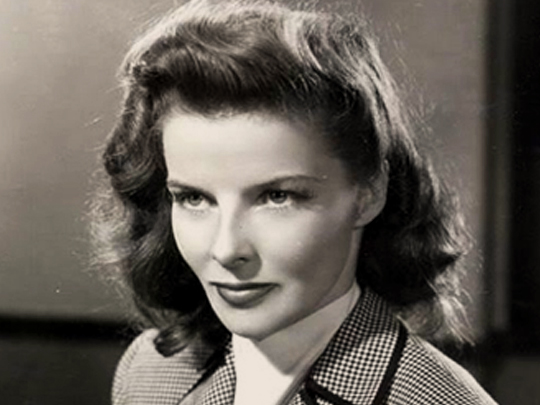
May 12, 1907 – June 29, 2003 (Aged 96)
Hepburn was a legendary American actress, who was a leading lady in Hollywood for more than 60 years, during which she received a record four Academy Awards for Best Actress.
Among her most notable films are The African Queen, Bringing Up Baby, Guess Who’s Coming to Dinner, The Philadelphia Story, The Lion in Winter, and On Golden Pond.
Offscreen, Hepburn had a famously strong personality, which saw her shy away from nearly all publicity, refusing to conform to the traditional image of women, often not wearing make-up and wearing trousers before it was fashionable to do so.
As a young woman, she was married briefly but divorced in 1934.
Hepburn had a 26-year affair with Spencer Tracy, which only came to light in 1983 following the death of Tracy’s wife, with whom he had separated from in the 1930s.
Renowned for her tireless work ethic, Hepburn starred in her final screen role in 1994 at the age of 87.
In 1999, Hepburn was named by the American Film Institute as Hollywood’s greatest female star.
In her final years, Hepburn showed signs of dementia, before dying of cardiac arrest at the age of 96. She was buried without any memorial service, at her request.
Bob Hope
(Entertainer)
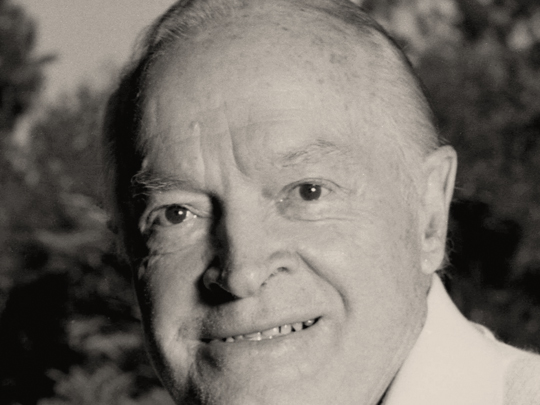
29 May 1903 – 27 July 2003 (Aged 100)
Hope was a famous English-born American entertainer, renowned for his sharp delivery of jokes and one-liners.
His career spanned nearly 80 years, appearing in over 50 feature films and saw him host the Academy Awards show a record 19 times.
Between 1941 and 1991, Hope became famous for performing shows to entertain active-duty American military personnel, making 57 tours in total.
In 1997, he was declared an honorary veteran of the U.S. Armed Forces by an act of the United States Congress.
Hope’s distinguished career saw him receive over 2,000 honors, including the Congressional Gold Medal for service to his country.
In May 2003, President George W. Bush established the Bob Hope American Patriot Award.
Hope remained in good health until late in his life, before suffering from pneumonia in his final weeks, dying at the grand old age of 100.
Idi Amin
(Ugandan President)
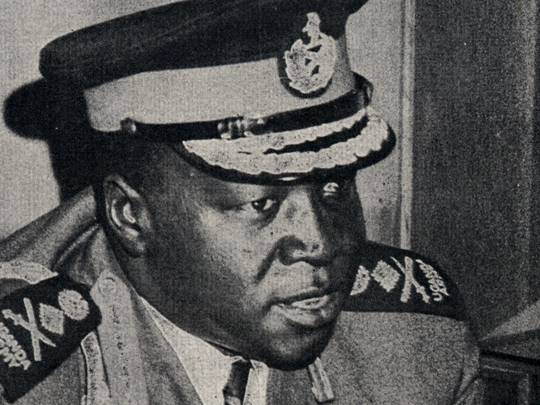
c.1925 – 16 August 2003 (Aged 78)
Amin was a Ugandan politician and military officer who was the President of Uganda from 1971 to 1979, presiding over a brutal regime.
Amin rose through the army ranks to the position of Commander of the Army in 1965.
In 1971, after learning that President Obote was planning to arrest him for misappropriation of funds, Amin launched a military coup and declared himself President.
During his time in power, Amin shifted Uganda from being a pro-western country to aligning the country with Libya’s Muammar Gaddafi, Zaire’s Mobutu, the Soviet Union, and East Germany.
In 1978, Amin attempted to annex Tanzania’s Kagera Region, Tanzanian president Julius Nyerere had his troops invade Uganda, capturing Kampala and ousting Amin from power.
Following this defeat, Amin went into exile in Libya, and then onto Saudi Arabia, where he lived until his death at the age of 78.
Amin’s rule was characterized by rampant human rights abuses, repression, and corruption.
The number of people killed during his regime is estimated by human rights groups to range from between 100,000 to 500,000.
Charles Bronson
(Actor)
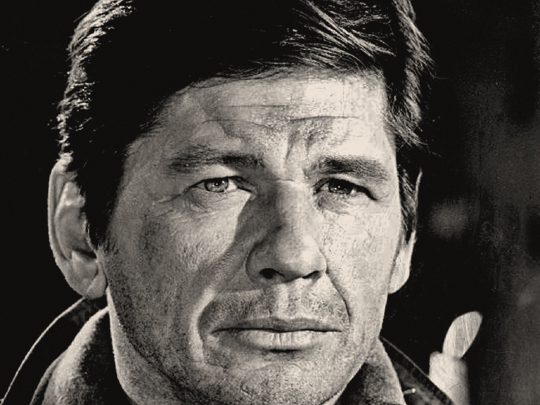
3 November 1921 – 30 August 2003 (Aged 81)
Bronson was a renowned American actor best known for playing tough-guy roles in films such as The Magnificent Seven, The Great Escape, The Dirty Dozen, and Once Upon a Time in the West.
In 1943, Bronson enlisted in the United States Army Air Forces and was an aerial gunner with a Guam-based Squadron, which conducted combat missions against the Japanese home islands.
In total, Bronson flew 25 missions and received a Purple Heart for wounds that he received in battle.
After the war, he joined a theatrical group in Philadelphia and moved to Hollywood in 1950, where he would become a star.
In his final years, Bronson suffered from deteriorating health before dying from respiratory failure at the age of 81.
Nina Simone
(Singer)

21 February 1933 – 21 April 2003 (Aged 70)
Simone was a gifted American singer and activist during the Civil Rights Movement. Among her most famous songs is “Mississippi Goddam”, “Ain’t Got No, I Got Life”, “My Baby Just Cares for Me”, and “Feelin Good”.
Born Eunice Waymon, she changed her name to “Nina Simone”, due to wanting to disguise herself from her devoutly religious parents having chosen to play “the devil’s music”, beginning her jazz career at a nightclub in Atlantic City in the 1950s.
After the 1960s, Simone experienced mental health and financial struggles and left America to live in places such as Liberia, Switzerland, England, and Barbados before settling in France for the remainder of her life.
In the 1980s, Simone was diagnosed with bipolar disorder, before suffering from breast cancer in her final years.
She died in her sleep at her home in France at the age of 70.
In 2018, Simone was inducted into the Rock and Roll Hall of Fame.
June Carter Cash
(Singer)
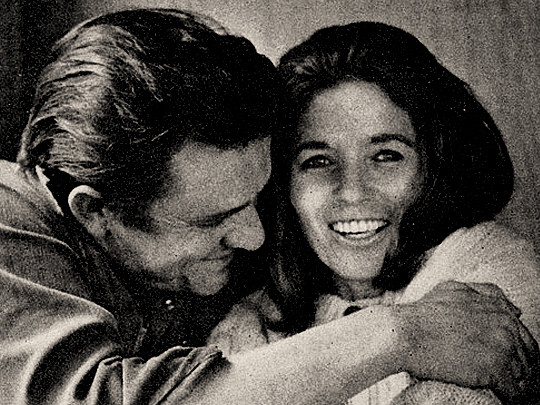
23 June 1929 – 15 May 2003 (Aged 73)
June was an American singer-songwriter, who was a member of the renowned country music group the Carter Family and the second wife of singer Johnny Cash.
June met Johnny while on tour in 1955 and was proposed to 13 years after they first met during a live performance in London, Ontario.
For the next 35 years, they raised their child, created music, and toured together until June’s death following heart surgery at the age of 73. Johnny died less than 4 months after June.
During her career, Carter Cash won five Grammy Awards and was inducted into the Christian Music Hall of Fame in 2009.
June and Johnny also worked with and gave money to the group, SOS Children’s Villages, throughout their lives.
Fred Rogers
(Television Personality)
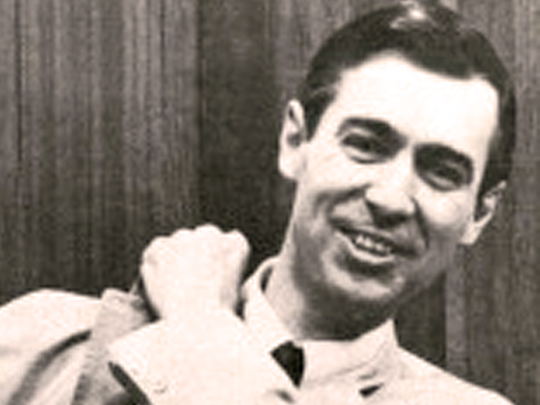
20 March 1928 – 27 February 2003 (Aged 74)
Rogers was a much-loved television personality, mainly known as the creator and host of the preschool television series Mister Rogers’ Neighborhood, which ran from 1968 to 2001.
The show was critically acclaimed, with Rogers proving to be a man before his time, focusing on children’s mental health and broaching topics such as divorce, sibling rivalry, and death.
In 1997, he was awarded a Lifetime Achievement Emmy and President George W. Bush awarded him the U.S. Presidential Medal of Freedom in 2002. He was also inducted into the Television Hall of Fame in 1999.
Rogers influenced many future children’s television shows, while his gentle nature in his broadcasts was a source of comfort for many during tragic events, such as the Vietnam War, Bobby Kennedy’s assassination, and the September 11 attacks in 2001.
Rogers died of stomach cancer at the age of 74.
Maurice Gibb
(Singer)

22 December 1949 – 12 January 2003 (Aged 53)
Gibb was a British singer-songwriter who achieved fame as a member of the pop group the Bee Gees.
Among their most famous songs are “Saturday Night Fever”, “Staying Alive” and, “How Deep Is Your Love.”
They performed and recorded for most of their career, from their first hit in 1967, until Maurice’s death in 2003.
In 1997, the Bee Gees were inducted into the Rock and Roll Hall of Fame, while in 2002, they were appointed as CBEs for their contribution to music.
Maurice died unexpectedly at the age of 53, due to complications of a twisted intestine during surgery.


